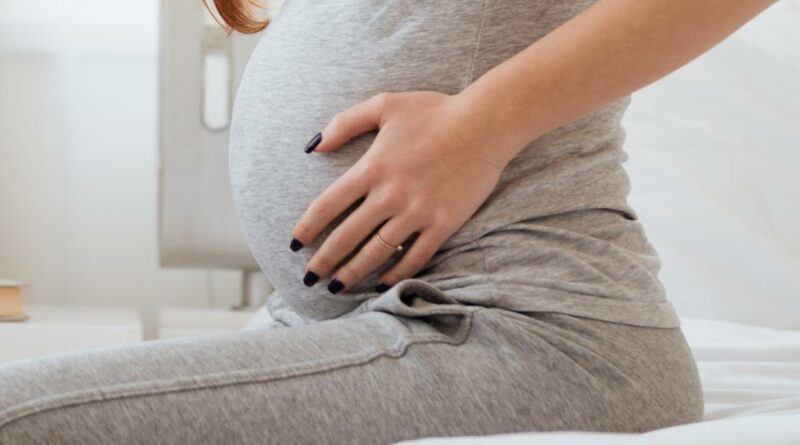Lower Left Abdomen Pain in Pregnancy – Doctor Tips
Lower left abdomen pain in pregnancy can be a sign of many things. It could be something as harmless as gas or indigestion, or it could be a more serious condition like an ectopic pregnancy or ovarian cyst. If you’re experiencing lower left abdomen pain during pregnancy, it’s important to pay attention to other symptoms you may be experiencing and contact your healthcare provider right away.
Common discomforts in your first trimester
Lower left abdomen pain in pregnancy can be a sign of a variety of different things. It is important to pay attention to the type and severity of the pain, as well as other symptoms that may accompany it. If you are experiencing lower left abdominal pain during pregnancy, it is important to contact your healthcare provider.
They will be able to determine the cause of the pain and rule out any serious conditions.
There are many potential causes of lower left abdominal pain during pregnancy. One common cause is round ligament pain.
This is caused by the stretching of the ligaments that support the uterus as it grows. Round ligament pain is usually sharp and temporary, and often occurs when you change positions or get up from sitting or lying down. Another common cause of lower left abdominal pain is gas or bloating.
This can be uncomfortable, but is usually not painful. Drinking plenty of fluids and eating smaller meals more often can help relieve symptoms.
In some cases, lower left abdominal pain can be a sign of a more serious condition such as preterm labor or an ectopic pregnancy (pregnancy outside the uterus).
If you are experiencing any other symptoms along with lower left abdominal pain, such as cramping, bleeding, or fever, it is important to seek medical attention right away. These could be signs of a miscarriage or another serious problem.
If you experience occasional bouts of lower left abdominal pain during pregnancy that are not accompanied by other symptoms, there are several things you can do at home to help ease the discomfort: apply heat or ice packs to the area; take over-the-counter medications like acetaminophen; avoid activities that aggravate the pain; and rest when possible.
.
Left Side Pain During Pregnancy 2Nd Trimester
As your baby grows and your uterus stretches during pregnancy, you may experience some aches and pains. While most are normal and benign, some can be a sign of a more serious problem. Left side pain during pregnancy is one potential issue expectant mothers may face.
What Causes Left Side Pain During Pregnancy?
There are several possible causes of left side pain during pregnancy. One is round ligament pain, which is caused by the stretching of the ligaments that support the uterus.
This pain is usually sharp and comes on suddenly, often when you change positions or get up from sitting or lying down. It should go away within a few minutes. If it doesn’t, or if it’s accompanied by other symptoms like fever, chills, or vaginal bleeding, it could be a sign of preterm labor and you should call your doctor right away.
Another possible cause of left side pain during pregnancy is gas or bloating. This can be uncomfortable but is usually not harmful to you or your baby. To help relieve gas pain, try eating smaller meals more frequently throughout the day instead of three large ones.
Avoiding foods that make you gassy (like broccoli, cabbage, and beans) can also help. And don’t forget to drink plenty of fluids to keep things moving through your digestive system!
When Should I Call My Doctor About Left Side Pain During Pregnancy?
If the pain is severe (more than just occasional discomfort), persistent (doesn’t go away after changing position or taking over-the-counter medication), or accompanied by other troubling symptoms like fever/chills or vaginal bleeding/discharge, call your doctor right away as these could be signs of something more serious like preterm labor or an ectopic pregnancy (when the embryo implants outside the uterus). Otherwise, if the pain is milder and goes away on its own after a few minutes, there’s no need to worry – just try to take it easy and give yourself time to rest!
Lower Left Side Pain During Pregnancy Third Trimester
If you’re experiencing lower left side pain during your third trimester of pregnancy, you’re not alone. Many pregnant women experience this type of pain, especially as their due date approaches. There are a few different things that can cause lower left side pain during pregnancy, so it’s important to talk to your doctor to rule out any serious causes.
One common cause of lower left side pain during pregnancy is round ligament pain. The round ligaments are two strong bands of tissue that support the uterus and connect it to the pelvis. As the uterus grows during pregnancy, these ligaments stretch and can cause sharp pains on either side of the abdomen.
Round ligament pain is usually most noticeable when you change position suddenly or get up from a sitting or lying down position too quickly.
Another possible cause of lower left side pain during pregnancy is gas or bloating. As your baby grows and your intestines get crowded, you may have trouble passing gas.
This can lead to cramps and discomfort in the lower abdomen. To help relieve gas pains, try eating smaller meals more often and avoiding foods that tend to give you gas (like beans, broccoli, and cabbage).
If you’re experiencing severe or persistent lower left side pain during your third trimester, be sure to call your doctor right away.
While most cases of abdominal pain during pregnancy are benign, there are some rare but serious conditions (like placental abruption) that can also cause abdominal pain. So don’t hesitate to reach out for help if you’re concerned about your symptoms!
Left Side Pain Pregnancy Early Signs
If you’re experiencing pain on your left side during pregnancy, it could be any number of things. It might be something as innocuous as round ligament pain, or it could be a sign of a more serious problem like an ectopic pregnancy.
Of course, if you’re experiencing any kind of pain during pregnancy, it’s always best to err on the side of caution and check with your doctor or midwife just to be sure.
Here are some possible causes of left-sided pain during pregnancy:
Round Ligament Pain: This is a very common cause of sharp pains on either side during pregnancy. As your uterus grows and stretches, the round ligaments that support it can become strained, causing brief shooting pains.
Usually this type of pain is nothing to worry about and will resolve itself with time.
Ectopic Pregnancy: An ectopic pregnancy occurs when the fertilized egg implants itself outside of the uterus, usually in one of the fallopian tubes. This can cause severe abdominal pain, usually on just one side (usually the left).
If you think you may be having an ectopic pregnancy, seek medical help immediately as they can be life-threatening.
Kidney Stones: Kidney stones are more common in pregnant women than those who are not pregnant. The increase in hormones and change in diet can contribute to their formation.
kidney stones can cause severe pain on either side (again, usually the left), as well as nausea and vomiting. If you think you may have kidney stones, see your doctor for treatment options.
Baby on Left Side of Stomach in Early Pregnancy
If you’re pregnant, you may have noticed that your baby often seems to be on the left side of your stomach. This is perfectly normal and nothing to worry about. Your baby is simply getting comfortable in your womb.
During early pregnancy, your baby is constantly moving around and changing positions. So don’t be surprised if you find him or her on the right side one day and on the left side the next. As your pregnancy progresses, your baby will settle into a more fixed position, usually with his or her head pointing down towards your pelvis ready for delivery.
Some research has suggested that babies who are in a breech (bottom first) position at 36 weeks are more likely to turn themselves around to the head-down position before labour starts. If this happens, you’ll probably feel your baby’s kicks become less frequent as he or she has less space to move around.
Lower Stomach Pain During Pregnancy 3Rd Trimester
If you’re experiencing lower stomach pain during your pregnancy, you’re not alone. Many women experience this type of pain, especially in the third trimester. There are a few different reasons why you may be experiencing lower stomach pain.
One possibility is that the pain is caused by round ligament syndrome. This happens when the ligaments that support your uterus stretch and cause pain. The pain is usually felt on either side of your lower abdomen and can range from mild to severe.
Another possibility is Braxton-Hicks contractions. These are practice contractions that help your body prepare for labor. They’re usually not painful, but some women do feel them in their lower abdomen.
If you’re concerned about the pain you’re feeling, talk to your doctor or midwife. They can help determine if what you’re feeling is normal or something more serious.
1 Week Pregnant Stomach Pain
It’s normal to experience some stomach pain when you’re one week pregnant. After all, your body is going through a lot of changes! However, if the pain is severe or accompanied by other symptoms like bleeding, it could be a sign of something more serious.
If you’re concerned about your stomach pain, be sure to contact your healthcare provider.
Lower Abdominal Pain in Early Pregnancy
If you’re experiencing lower abdominal pain in early pregnancy, there are a number of possible causes. It could be something as simple as constipation or gas, or it could be a sign of something more serious like an ectopic pregnancy.
If the pain is severe, persistent, or accompanied by other symptoms like bleeding or dizziness, it’s important to see your doctor right away to rule out any potential complications.
In most cases, however, lower abdominal pain in early pregnancy is nothing to worry about and will resolve on its own as your pregnancy progresses. If the pain is bothersome, though, there are some things you can do to help ease the discomfort.
Drinking plenty of fluids and staying well-hydrated can help with gas and bloating.
Eating smaller meals more often can also help prevent indigestion and heartburn. And if constipation is the issue, try to increase your fiber intake by eating more fruits, vegetables, and whole grains.
If you’re still having trouble finding relief from the pain, talk to your doctor about over-the-counter medications that might be safe for use during pregnancy.
Low Belly Pain When Pregnant
There are many types of pains and aches that can occur during pregnancy, but low belly pain is one of the more common complaints. This pain is usually located in the lower abdomen, just above the pubic bone. It can range from a dull ache to sharp, stabbing pains and is often worse when you move around or lie down.
The cause of low belly pain during pregnancy is not always clear. It may be related to the growing uterus putting pressure on your stomach and intestines. Hormonal changes can also contribute to this type of pain as well as gas and bloating.
For some women, this pain may be a sign of round ligament pain, which occurs when the ligaments that support the uterus stretch and tear.
If you’re experiencing low belly pain during pregnancy, there are a few things you can do to help ease the discomfort:
– Place a heating pad on your lower abdomen for short periods of time (15-20 minutes).
– Try lying on your side or propping yourself up with pillows to take some pressure off your stomach area.
– Avoid lying flat on your back for extended periods of time as this can worsen the pain.

Credit: americanpregnancy.org
Is It Normal to Have Pain on Your Left Side During Pregnancy?
No, it is not normal to have pain on your left side during pregnancy. While some pregnant women experience pain on one side or the other during pregnancy, this is usually related to the position of the baby and is not a cause for concern. If you are experiencing pain on your left side that is severe or persists, however, you should speak with your doctor as soon as possible as it could be a sign of a more serious problem.
When Should I Be Worried About Lower Abdominal Pain During Pregnancy?
When you experience lower abdominal pain during pregnancy, it’s important to pay attention to the intensity and duration of the pain. If the pain is severe and persistent, it could be a sign of a serious problem and you should seek medical attention right away. There are many possible causes of lower abdominal pain during pregnancy, some of which are more serious than others.
Some common causes include gas, constipation, Braxton-Hicks contractions (false labor), round ligament pain (a sharp, shooting pain that occurs when the round ligaments that support the uterus stretch), and pelvic floor muscle spasms. If yourlower abdominal pain is accompanied by other symptoms like cramping, bleeding, or fever, this could be a sign of an ectopic pregnancy (when the fertilized egg implants outside of the uterus) or placental abruption (when the placenta separates from the uterine wall before delivery). These are both potentially life-threatening conditions and require immediate medical attention.
In general, if you’re experiencing any sort of abdominal pain during pregnancy that is severe or persists for more than a few minutes, it’s always best to err on the side of caution and give your healthcare provider a call. They can help determine if there’s anything to worry about or if your symptoms are likely due to something harmless like gas or Braxton-Hicks contractions.
Conclusion
Lower left abdomen pain in pregnancy can be caused by a number of things, including gas, constipation, and round ligament pain. However, if the pain is severe or accompanied by other symptoms like bleeding or cramping, it could be a sign of something more serious like ectopic pregnancy or miscarriage. If you’re experiencing lower left abdominal pain during pregnancy, it’s important to contact your healthcare provider to rule out any potential complications.




